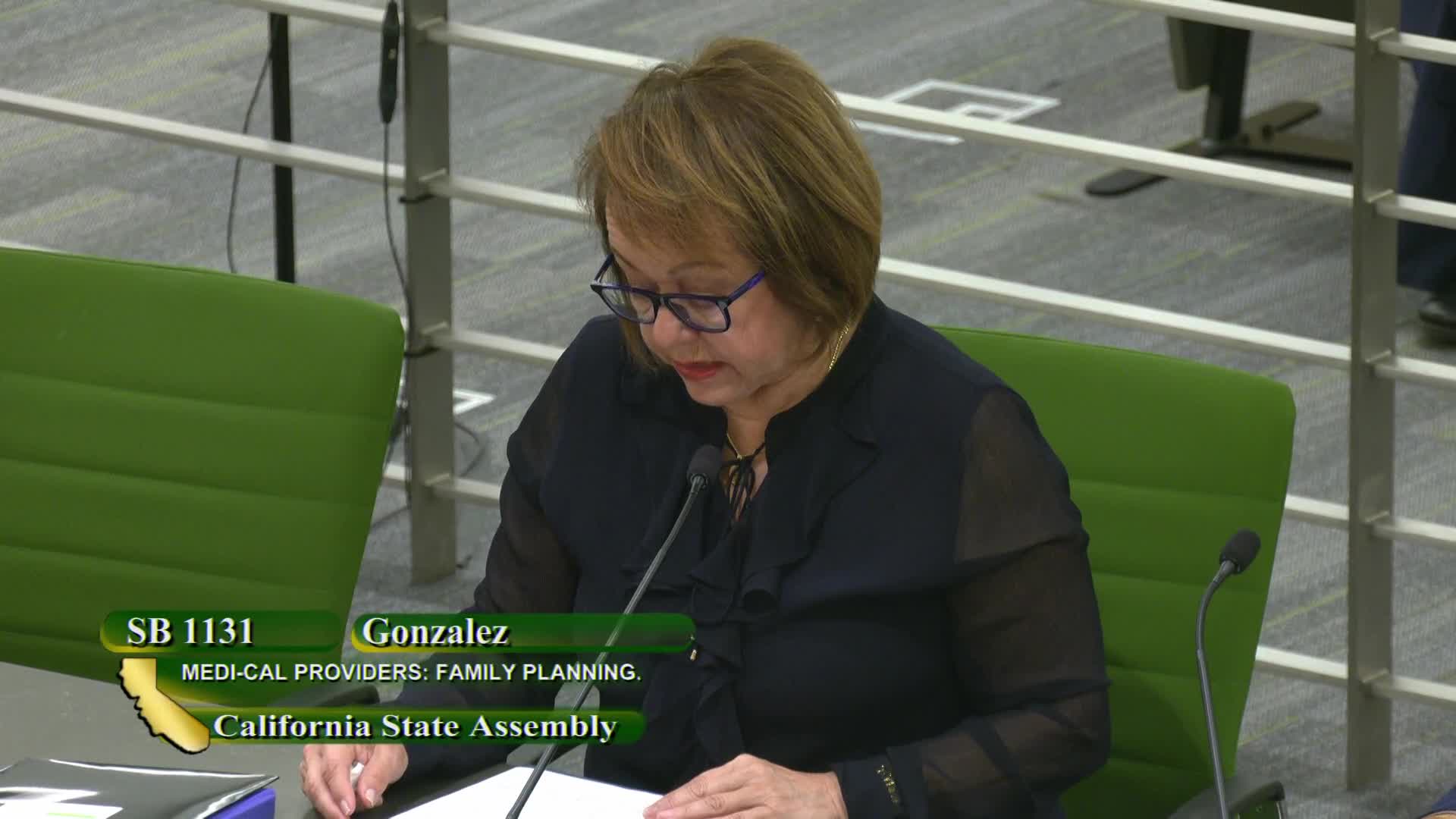California Expands Access to Critical Cancer Screening Services
June 04, 2024 | Health, Standing Committees, California State Assembly, House, Legislative, California

This article was created by AI summarizing key points discussed. AI makes mistakes, so for full details and context, please refer to the video of the full meeting. Please report any errors so we can fix them. Report an error »

In a recent government meeting, California lawmakers discussed two significant bills aimed at enhancing access to critical health services for low-income residents.
The first bill, SB 1131, seeks to reform the Family Planning Access Care and Treatment (Family PACT) program, which has provided free family planning services, including contraception and STI testing, since 1997. Currently, only physicians, certified midwives, or certified nurse practitioners can certify clinics to offer these services, a limitation that has been exacerbated by a healthcare workforce shortage. SB 1131 proposes to broaden the certification process, allowing any clinician overseeing Family PACT services to certify clinics. Additionally, it mandates that the Department of Health Services (DHS) and Department of Health Care Services (DHCS) provide virtual training sessions monthly to ensure that providers are well-informed about program policies. The bill also clarifies that providers will not be disenrolled from Family PACT due to actions taken in other states that do not constitute unprofessional conduct in California.
Kelby Lind, representing Planned Parenthood Affiliates of California, voiced strong support for the bill, emphasizing its importance in maintaining access to affordable family planning services, particularly for individuals with confidentiality concerns. Lind highlighted that Planned Parenthood is the largest provider under the Family PACT program, facilitating over half a million visits annually.
The second bill, SB 1213, presented by Senator Durazo on behalf of Senator Atkins, aims to expand access to breast and cervical cancer screenings and treatment for lower-income Californians. This legislation proposes raising the income eligibility threshold for the Every Woman Counts program from 200% to 300% of the federal poverty level, allowing more women to access essential screenings and treatments. Currently, many women with incomes just above the existing threshold struggle to afford insurance or face high out-of-pocket costs, leading to delays in necessary care.
Supporters of SB 1213, including representatives from the American Cancer Society and the Susan G. Komen Foundation, underscored the bill's potential to save lives by ensuring timely access to cancer screenings and treatment for underserved populations. They argued that expanding these programs aligns with California's goals of improving healthcare accessibility and reducing cancer mortality rates.
Both bills received strong backing from various health organizations and advocates, reflecting a collective commitment to enhancing healthcare access for vulnerable communities in California. The committee is expected to vote on these measures soon, with proponents urging swift approval to address pressing health disparities.
The first bill, SB 1131, seeks to reform the Family Planning Access Care and Treatment (Family PACT) program, which has provided free family planning services, including contraception and STI testing, since 1997. Currently, only physicians, certified midwives, or certified nurse practitioners can certify clinics to offer these services, a limitation that has been exacerbated by a healthcare workforce shortage. SB 1131 proposes to broaden the certification process, allowing any clinician overseeing Family PACT services to certify clinics. Additionally, it mandates that the Department of Health Services (DHS) and Department of Health Care Services (DHCS) provide virtual training sessions monthly to ensure that providers are well-informed about program policies. The bill also clarifies that providers will not be disenrolled from Family PACT due to actions taken in other states that do not constitute unprofessional conduct in California.
Kelby Lind, representing Planned Parenthood Affiliates of California, voiced strong support for the bill, emphasizing its importance in maintaining access to affordable family planning services, particularly for individuals with confidentiality concerns. Lind highlighted that Planned Parenthood is the largest provider under the Family PACT program, facilitating over half a million visits annually.
The second bill, SB 1213, presented by Senator Durazo on behalf of Senator Atkins, aims to expand access to breast and cervical cancer screenings and treatment for lower-income Californians. This legislation proposes raising the income eligibility threshold for the Every Woman Counts program from 200% to 300% of the federal poverty level, allowing more women to access essential screenings and treatments. Currently, many women with incomes just above the existing threshold struggle to afford insurance or face high out-of-pocket costs, leading to delays in necessary care.
Supporters of SB 1213, including representatives from the American Cancer Society and the Susan G. Komen Foundation, underscored the bill's potential to save lives by ensuring timely access to cancer screenings and treatment for underserved populations. They argued that expanding these programs aligns with California's goals of improving healthcare accessibility and reducing cancer mortality rates.
Both bills received strong backing from various health organizations and advocates, reflecting a collective commitment to enhancing healthcare access for vulnerable communities in California. The committee is expected to vote on these measures soon, with proponents urging swift approval to address pressing health disparities.
View full meeting
This article is based on a recent meeting—watch the full video and explore the complete transcript for deeper insights into the discussion.
View full meeting
